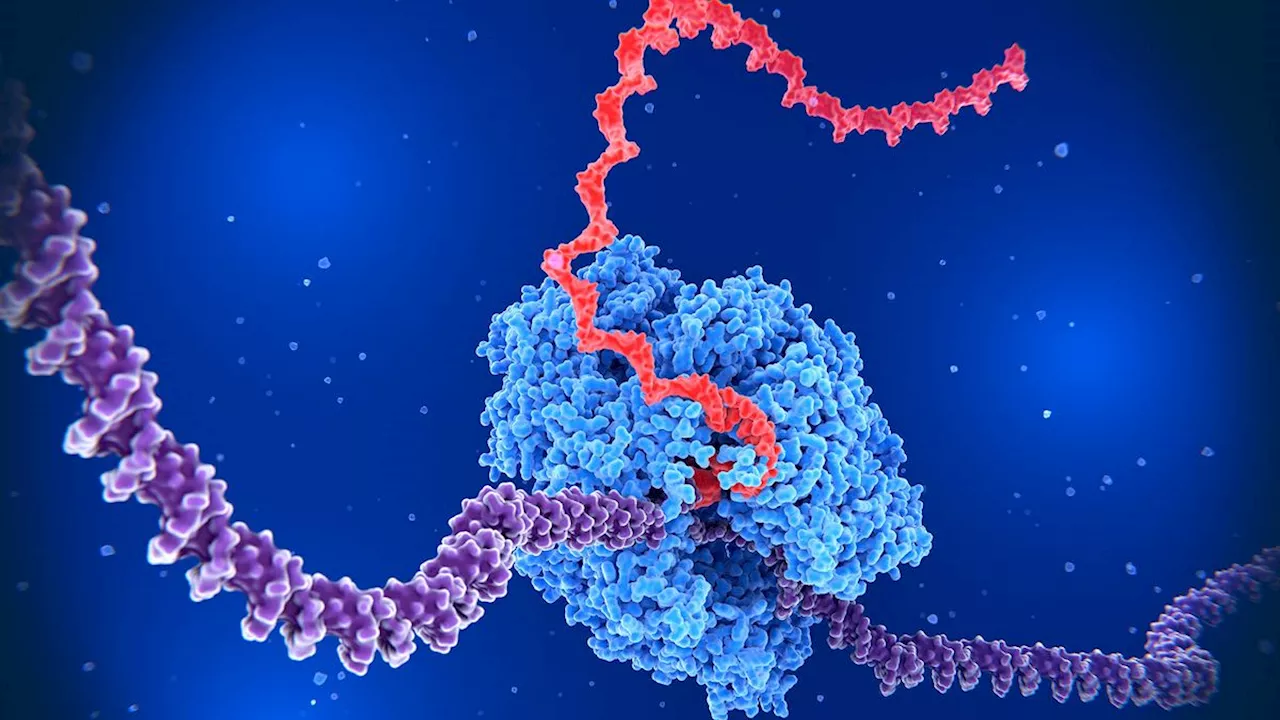Science, Space and Technology News 2024
Colored fossil snail shells and a snail shell from modern times . Credit: Klaus WolkensteinSnail shells are often colorful and strikingly patterned. This is due to pigments that are produced in special cells of the snail and stored in the shell in varying concentrations. Fossil shells, on the other hand, are usually pale and inconspicuous because the pigments are very sensitive and have already decomposed. Residues of ancient color patterns are therefore very rare.
This makes this new discovery by researchers from the University of Göttingen and the Natural History Museum Vienna all the more astonishing: they found pigments in twelve-million-year-old fossilized snail shells. These are the world’s first pigments from the chemical group of polyenes that have been preserved almost unchanged and found in fossils.
Researchers at Göttingen University’s Geoscience Center solved the mystery. They analyzed the pigments using Raman spectroscopy. This involves irradiating samples with laser light. The scattered light reflected from the sample can be used to clearly identify chemical compounds. They detected pigments in the fossilized shells that belong to the polyene group of chemicals.
Dr. Klaus Wolkenstein, who led the study and has been researching the chemistry of fossil pigments at Göttingen University for many years, explains: “Normally, after such a long period of time, the best we can hope for is that there are traces of degradation products of these chemicals. If degraded, however, these compounds would be devoid of color. So, it was really surprising to discover these pigments, preserved almost intact, in fossils that are twelve million years old.
Reference: “Detection of intact polyene pigments in Miocene gastropod shells” by Klaus Wolkenstein, Burkhard C. Schmidt and Mathias Harzhauser, 1 February 2024,SciTechDaily: Home of the best science and technology news since 1998. Keep up with the latest scitech news via email or social media.Scientists have developed a metafluid with programmable response. Scientists at the Harvard John A.
United Kingdom Latest News, United Kingdom Headlines
Similar News:You can also read news stories similar to this one that we have collected from other news sources.
 As scientists find real exoplanets, sci-fi writers change their vision of alien worldsKeith Cooper is a freelance science journalist and editor in the United Kingdom, and has a degree in physics and astrophysics from the University of Manchester.
As scientists find real exoplanets, sci-fi writers change their vision of alien worldsKeith Cooper is a freelance science journalist and editor in the United Kingdom, and has a degree in physics and astrophysics from the University of Manchester.
Read more »
 Scientists Discovered a 'Fear Switch' in The Brain, And How to Turn It OffThe Best in Science News and Amazing Breakthroughs
Scientists Discovered a 'Fear Switch' in The Brain, And How to Turn It OffThe Best in Science News and Amazing Breakthroughs
Read more »
 Scientists discovered a strange new planet with boiling oceansScientists say they may have discovered a boiling ocean world that can reach upwards of 212 degrees Fahrenheit.
Scientists discovered a strange new planet with boiling oceansScientists say they may have discovered a boiling ocean world that can reach upwards of 212 degrees Fahrenheit.
Read more »
 Scientists Have Discovered an Underwater Ancient Island Paradise in the South Atlantic OceanScience, Space and Technology News 2024
Scientists Have Discovered an Underwater Ancient Island Paradise in the South Atlantic OceanScience, Space and Technology News 2024
Read more »
 Scientists just discovered a new way cells control their genes — it's called 'backtracking'Sahana Sitaraman is a science writer based in Lausanne, Switzerland, specializing in biology. She particularly enjoys writing about unusual animal behaviours and the neuroscience behind them, mental health and women in STEM. She also dabbles in illustrating cool findings that pique her interest.
Scientists just discovered a new way cells control their genes — it's called 'backtracking'Sahana Sitaraman is a science writer based in Lausanne, Switzerland, specializing in biology. She particularly enjoys writing about unusual animal behaviours and the neuroscience behind them, mental health and women in STEM. She also dabbles in illustrating cool findings that pique her interest.
Read more »
 Scientists May Have Discovered Reason for Long COVID Brain Fog—Here’s Why It MattersThere are so many different types of masks out there to protect us from COVID. What works best? How long can you wear them? Which ones are fake? Learn everything you need to know about COVID masks.
Scientists May Have Discovered Reason for Long COVID Brain Fog—Here’s Why It MattersThere are so many different types of masks out there to protect us from COVID. What works best? How long can you wear them? Which ones are fake? Learn everything you need to know about COVID masks.
Read more »
